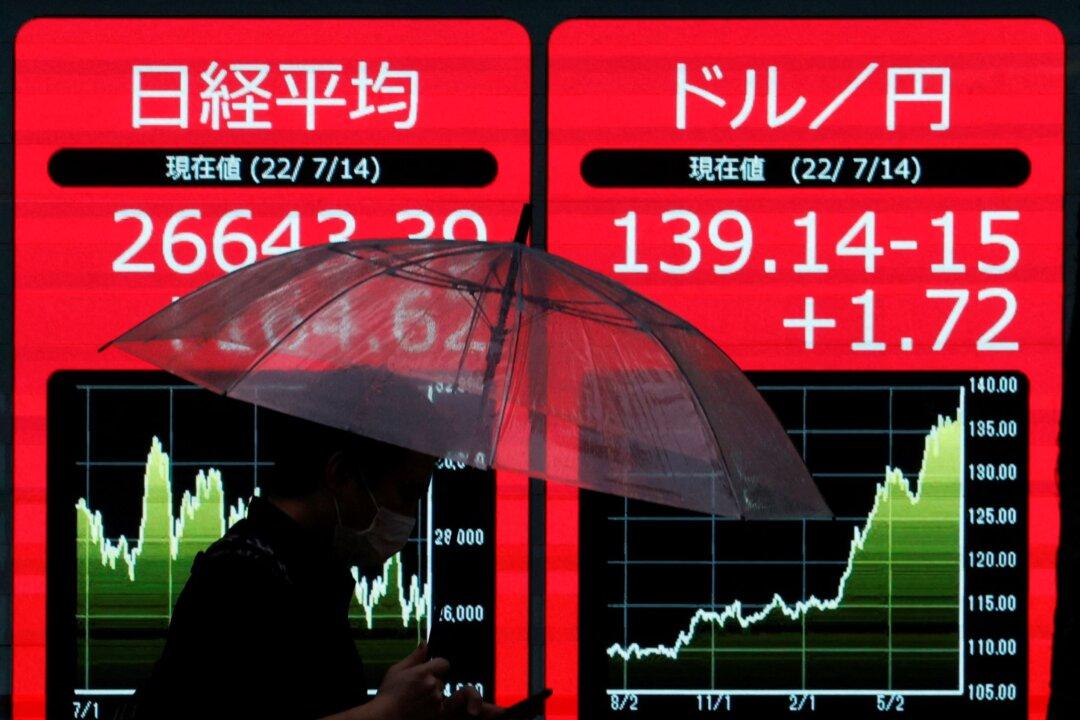MILAN/TOKYO—World stocks eased slightly on Wednesday as markets weighed risks from U.S. House Speaker Nancy Pelosi’s visit to Taiwan and comments from Federal Reserve officials talking up the chance of aggressive interest rate hikes.
MSCI’s benchmark for global stocks dipped by 0.1 percent by 0823 GMT, steadying after Tuesday’s drop that took the index off the multi-week highs hit after a rally in July.





